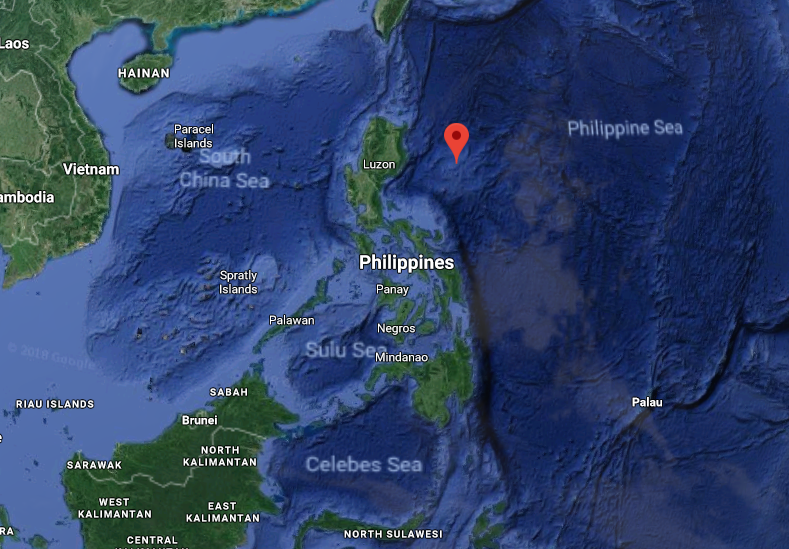Headline
PH to oppose Chinese names of PH Rise features

The Philippines will be contesting China’s move of naming five underwater features in the Philippine Rise, formerly known as Benham Rise. (Google Maps photo)
The Philippines will be contesting China’s move of naming five underwater features in the Philippine Rise, formerly known as Benham Rise.
During a press briefing on Wednesday, February 28, Foreign Affairs Undersecretary Ernesto Abella disclosed that the unauthorized research conducted by the Institute of Oceanology of the Chinese Academy of Sciences was lifted in bilateral consultations held on February 13 in Manila.
“Both sides agreed that all marine science research henceforth have the consent of the Philippines,” Abella said.
This development came after National Mapping and Resource Information Authority (NAMRIA) called on the Department of Foreign Affairs (DFA) to contest China’s move of naming the features in the plateau.
According to a Facebook post by Dr. Jay Batongbacal, director of the University of the Philippines (UP) Institute for Maritime Affairs and Law of the Sea, the International Hydrographic Organization-Intergovernmental Oceanographic Commission General Bathymetric Chart of the Oceans (IHO-IOC GEBCO) SCUFN approved the names that China submitted.
The Chinese government submitted the names Jinghao Seamount (found at about 70 nautical miles east of Cagayan province), Tianbao Seamount (found at about 70 nautical miles east of Cagayan province), Haidonquing Seamount (found at about 190 nautical miles east of Cagayan province), Cuiqiao Hill, and Jujiu Seamount.
In 2004, the features were allegedly found during a survey conducted by Li Siguang Hao of the China Navy Hydrographic Office.
The Chinese names were then submitted for consideration in 2014.
When asked whether China is going to take back the names they have submitted, the DFA Undersecretary responded “that is not covered in the report.”
“When we raised our concern, they were quite willing to proceed upon agreed upon terms from henceforth,” Abella said.
On February 26, Captain Herbert Catapang, NAMRIA hydrography branch assistant director, cited two factors that should nullify China’s naming move.
First was China’s collection of the data it submitted violated the United Nations Convention on the Law of the Sea (UNCLOS).
The other was SCUFN violating one if its own measures saying that they will not consider undersea feature name proposals that are “politically sensitive.”
“We can consider these proposals as such considering our dispute with China over the West Philippine Sea and the result of the recent arbitral ruling on the South China Sea,” Catapang said.
Apart from these, Catapang also mentioned that as far as they know, there were “no consultations” between the Philippines and China “before the submission of the proposals to the SCUFN (Sub-Committee on Undersea Feature Names).”
He stressed that SCUFN required consultations from involved parties.























